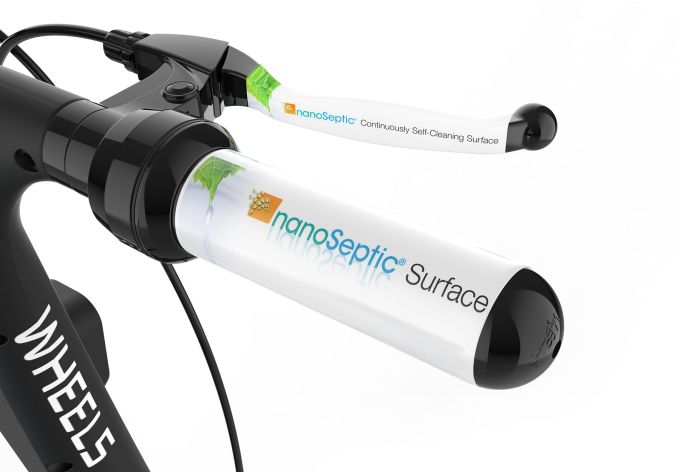Wheels, which recently paused its shared bike service to limit the spread of COVID-19, is making its pedal-less e-bikes available for gig workers, restaurants, non-profits or any other people who do their own deliveries. What’s different about these bikes is they will come with self-cleaning NanoSeptic handlebars and brake levers.
NanoSeptic’s technology, which is powered by light, uses mineral nano-crystals to create an oxidation reaction that is stronger than bleach, according to the company’s website. NanoSeptic then implements that technology into skins and mats to turn anything from a mousepad to door handles to handlebars into self-cleaning surfaces.

People can either rent these bikes on a weekly or monthly basis or purchase them outright. Weekly rentals will cost $29.99 and monthly rentals cost $89.99. Buying it outright will cost $999.
“Before we temporarily paused our regular service, we were taking all the appropriate actions to keep our bikes clean,” Wheels wrote in a blog post. “Among other things, we were frequently and thoroughly cleaning our bikes with disinfectant and wiping them down with a microfiber towel. But with shared scooters and bikes being ridden by many different people every day and no operator able to manually clean each device prior to every ride, we believed a more comprehensive solution was needed.”
Wheels’ pause in operations and launch of self-cleaning handlebars and brake levers came after the micromobility company was forced to lay off 6% of its staff in February. Wheels’ regular service will be paused at least through the end of this month.
Comments
Post a Comment